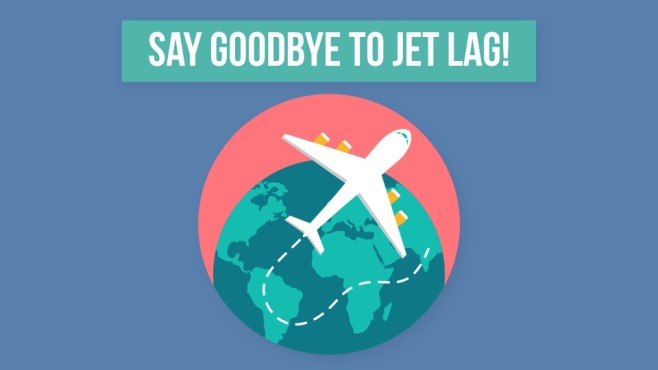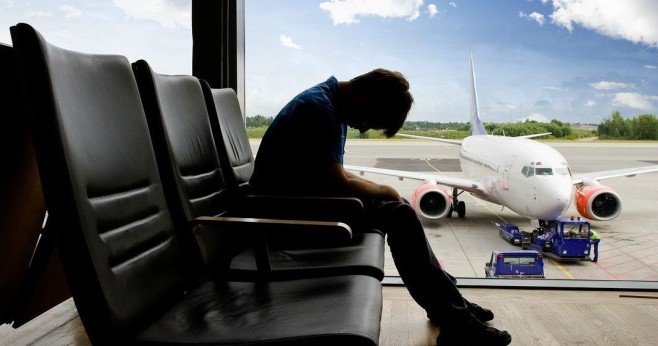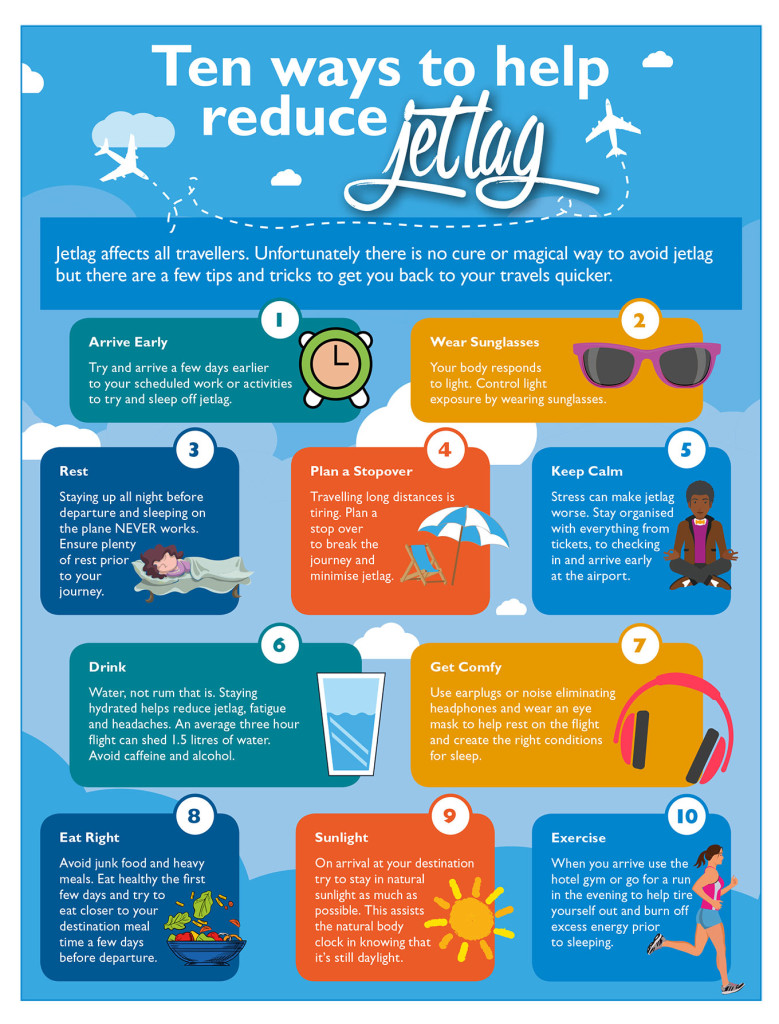We’ve all been there at one point or another, where we can’t seem to adjust to new time zones and our bodies are feeling exhaustion like never before. Although going on holiday to catch some well-deserved Vitamin D brings an overwhelming sense of happiness into your life, you didn’t exactly pay for a one-way ticket to tiredness.
Now the summer for us Brits is over, we know many of you will be wanting to get some winter sun, so if you’re heading to Dubai, Spain or even Bulgaria, we’ve got a few tips for you if you’re one to suffer terribly from jet lag – you’re welcome in advance.

What causes jet lag?
Jet lag is also known as desynchronosis and it is considered a circadian rhythm sleep disorder, which ultimately is the disruption of the internal body clock. If you understand how your body works, then understanding jet lag becomes a whole lot easier.
Our bodies are naturally programmed to do things that we don’t normally think about in great detail – such as sleeping and eating. It’s a built-in routine that we hardly ever break. This is all down to a small part of the brain which is called the hypothalamus, and this acts just like an alarm clock to activate body functions, such as sleep and hunger. Pretty cool, right?
This is known as
circadian rhythms, so when we fly to different time zones, our bodies become confused because although we’re aware we’re in a different time zone, our bodies do not. It’s very rare that when we travel we can immediately adjust to the difference, and our recovery time also depends on how many time zones we have crossed.

How long does jet lag last?
Jet lag is only temporary and there are many ways which can help you overcome it. It’s common for most people to adjust within a few days, but the further you travel and the more time zones you cross, the longer it will take for you to adjust and jet lag will definitely be trying to take you down, literally.
Jet lag studies have in fact shown that it takes a full day to recover from each time zone we travel through.
If you travel north or south, you will experience fewer problems – simply because the time of day remains the same, as in the place where the flight originated. Whereas if you were to fly east, you would experience quite a few problems because you essentially lose time. Many international flights have this problem which means our daily routines are pushed ahead. While this isn’t what we want to experience when we’re travelling, it’s better to prepare for jet lag to make the trip easier.
Tips For Preventing Jet Lag
Try to avoid arriving at night – flights which arrive in daylight make it easier for you to stay awake, whereas arriving in the dark will make you want to go to sleep, which is not advised when you’re suffering from jet lag (depending on the time zone).
Avoid alcohol and caffeine – alcohol and caffeine cause dehydration, disrupt sleeping schedules and have quite the impact when it comes to tiredness. It’s best to not drink alcohol or caffeine before, during or the day after your flight.
Stay hydrated with water – it’s important to stay hydrated with water on your flight to counteract the effects of the dry atmosphere inside the plane. Your body functions much better when it’s hydrated.
Be active on the plane – when we say active, we don’t mean go for little jogs up and down the aisles. You should exercise your legs every hour or two, not only to keep you awake, but because it prevents the risk of developing blood clots in the legs.
Break up the trip – This works best for
long haul flights. For example, if you’re flying from London to the Philippines, you should aim to break the trip up by scheduling a stopover at Dubai. This will enable your body to adjust to its new routine.
Get a good night’s sleep – If you’ve arrived at your destination to find the sun is beaming and all you want to do is sleep, you have to refrain! In order to tackle jet lag, you need to get used to the new time zone, so if everyone is awake while you’re there, you stay awake too to adapt to the local schedule. This will also help when you do eventually sleep. We hope your accommodation has comfy
mattresses so you sleep like a baby!

We hope we’ve provided some handy tips you should take on board with you when you fly next. If you do however, find yourself on holiday struggling to sleep, there are a range of
tips to help you function. Don’t hesitate to browse the latest articles on our blog for latest news, information and mattress deals!


 We hope we’ve provided some handy tips you should take on board with you when you fly next. If you do however, find yourself on holiday struggling to sleep, there are a range of tips to help you function. Don’t hesitate to browse the latest articles on our blog for latest news, information and mattress deals!
We hope we’ve provided some handy tips you should take on board with you when you fly next. If you do however, find yourself on holiday struggling to sleep, there are a range of tips to help you function. Don’t hesitate to browse the latest articles on our blog for latest news, information and mattress deals!

